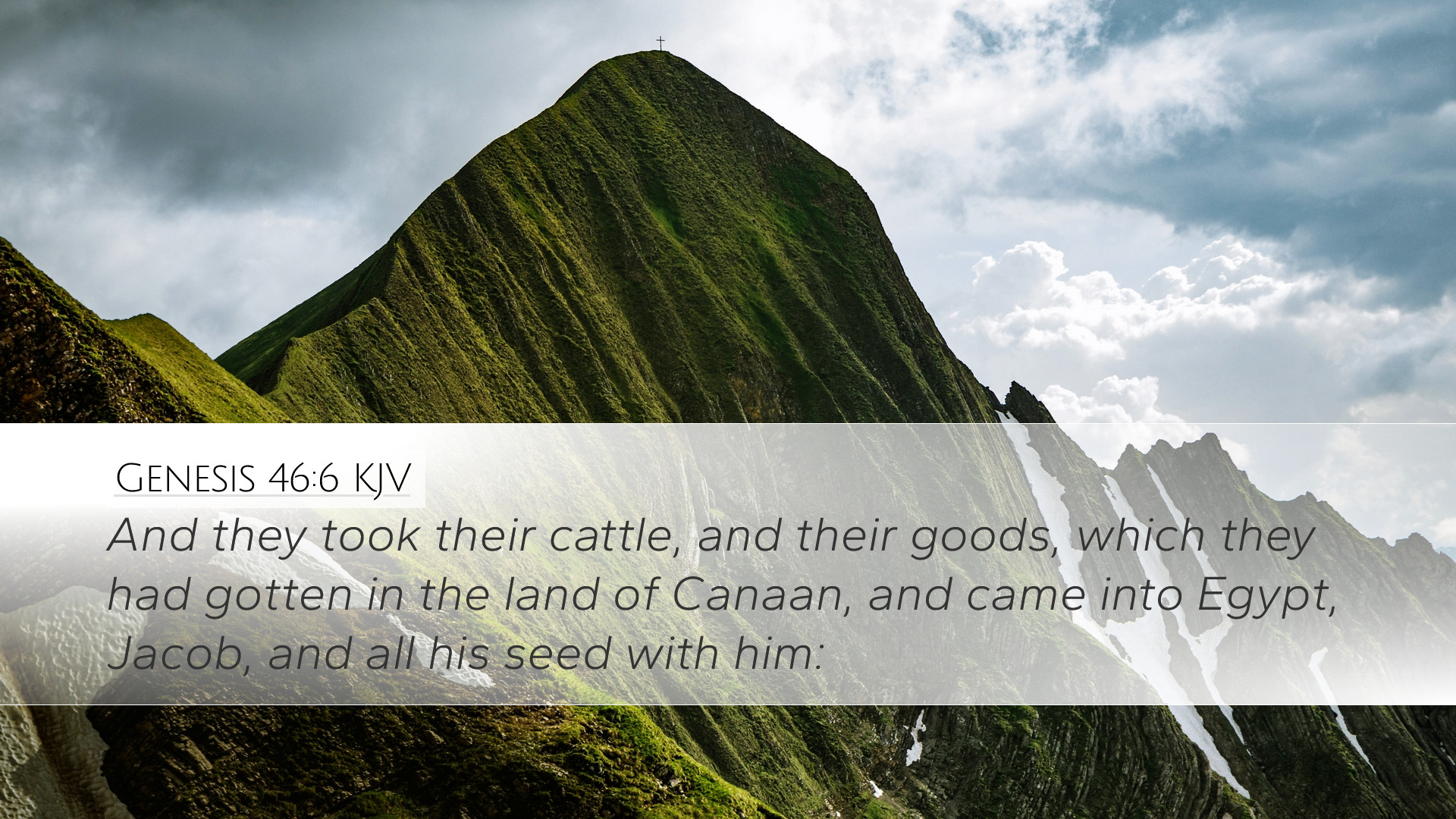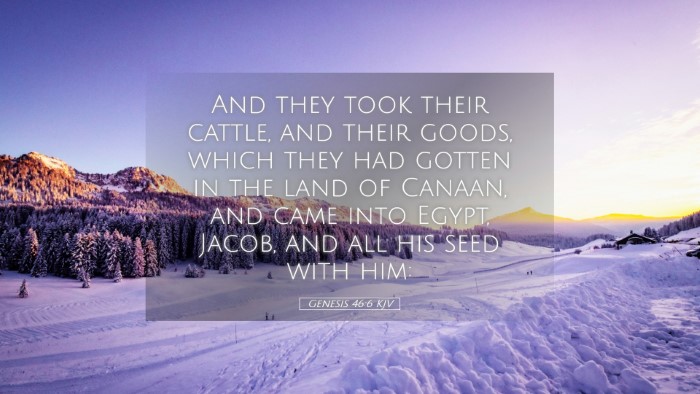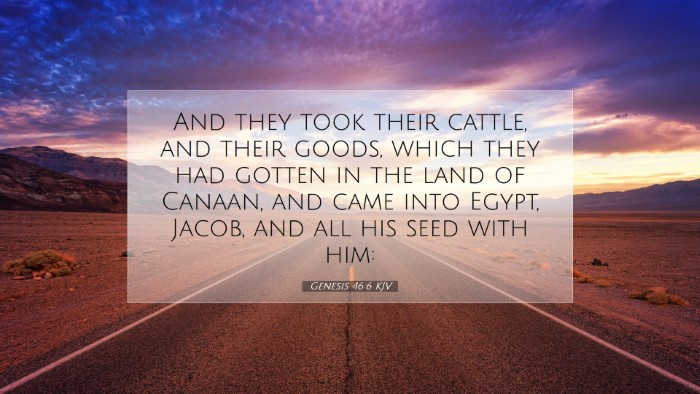Commentary on Genesis 46:6
Genesis 46:6 states:
"And they took their cattle, and their goods, which they had gotten in the land of Canaan, and came into Egypt, Jacob, and all his seed with him."
Contextual Overview
This verse is pivotal as it captures the moment when Jacob, also known as Israel, embarks on the journey to Egypt with his entire family. The context surrounding this verse is essential, as it indicates a significant transition in the narrative of the Israelite people.
Theological Significance
In this passage, we observe God's providential plan unfolding. The migration to Egypt, which seems to be a moment of despair, is in fact one that leads to the eventual fulfillment of God's promises to Abraham, Isaac, and Jacob. The mention of Jacob and his seed emphasizes the covenantal relationship, ensuring the continuity of God's chosen people.
Insights from Public Domain Commentaries
Matthew Henry's Commentary
Matthew Henry emphasizes the divine hand in Joseph's rise to power in Egypt, which subsequently allows for the preservation of Jacob's family during a time of famine. He notes, "Their going down into Egypt was a remarkable direction of Providence… God had made Joseph lord of the lands, and they could not have come into a better situation."
Henry also stresses the faith of Jacob, highlighting how he “went down” as an act of obedience to God's divine instruction which includes a promise to make him a great nation.
Albert Barnes' Notes on the Bible
Albert Barnes provides a detailed analysis of the events leading up to this journey. He points out that Jacob’s willingness to relocate demonstrates his acceptance of God’s will for the future of his family. Barnes writes, "Jacob's confidence was secured by the undeniable evidence of God’s providence which had safeguarded his son Joseph."
Moreover, Barnes reminds readers that not only were Jacob and his immediate family migrating, but this journey also symbolized a pivotal moment for the descendants of Israel, leading to their eventual growth as a nation.
Adam Clarke's Commentary
Adam Clarke delves into the emotional implications of this migration. He highlights Jacob’s emotional turmoil and fear as he departs from his homeland, stating, "Jacob, though he had the assurance of God’s presence, yet could not escape the pangs of leaving the land of Canaan."
In Clarke's perspective, this exodus to Egypt is not merely a physical journey; it is also a spiritual one where Jacob’s faith is tested. He emphasizes God's reassurances during this time of distress, particularly the importance of God's covenant in guiding Jacob through the uncertainty of a foreign land.
Practical Applications for Today
Genesis 46:6 provides several applications for modern readers, especially pastors and theologians:
- The Importance of Obedience: Jacob’s decision to move his family to Egypt despite his fears serves as an illustration of obedience to God’s direction.
- Faith amid Uncertainty: In moments of crisis, like famine, trusting in God’s plan becomes essential, reminding believers of His sovereignty.
- Divine Providence: The migration underscores that God orchestrates events for the greater good of His people, irrespective of current situations.
- Legacy and Family: This chapter emphasizes the importance of family heritage in the plan of God, challenging believers to consider their generational impact.
Conclusion
Genesis 46:6 is more than a historical account; it is rich in theological implications and encourages deep reflections on faith, obedience, and God’s providenIntegrated into the broader narrative, it firmly establishes the groundwork for Israel’s future as a nation.
Collectively, insights from Matthew Henry, Albert Barnes, and Adam Clarke paint a vivid picture of this pivotal event as one consolidating God’s promises to Israel, underscoring the essential themes of faith and divine guidance as they resonate through generations.


